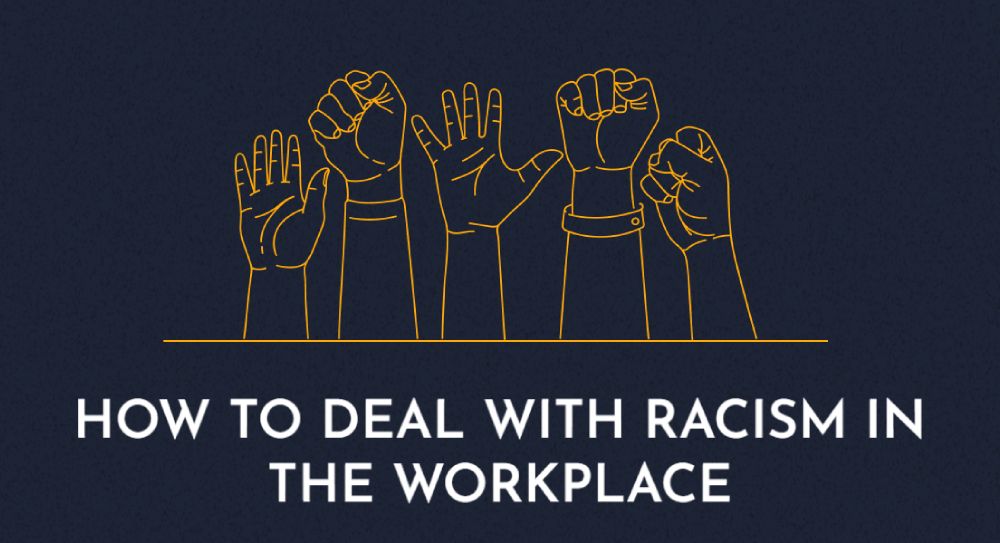
Racism at work isn’t always obvious. Sometimes it whispers behind closed doors, hides in unequal promotions, or shows up in how coworkers are treated for the same behavior. You might feel like you’re imagining it, or worry others will think you are.
But in Florida, discriminatory behavior at work doesn’t have to go unchecked. You’ve got options, and you don’t have to pretend it’s fine when it isn’t.
While state and federal laws offer protection, those protections aren’t self-executing. If you’re facing racial bias in your workplace, you’ll need more than good intentions to make it stop. A Florida employment lawyer will be able to evaluate what’s happening, identify legal violations, and pursue justice on your behalf.

When Microaggressions Stop Being “Micro”
You might not hear a slur to know something’s wrong. Comments about how you speak, assumptions about your intelligence, or being passed over in meetings all add up. These actions, often dismissed as “not a big deal,” contribute to a hostile environment. A single remark might be brushed off. A pattern, however, signals something deeper.
Coworkers who consistently question your decisions, undermine your authority, or “joke” about your background aren’t just being difficult. A Florida employment attorney will examine whether those behaviors are part of a racially motivated atmosphere. Patterns of bias, even if subtle, carry legal weight when they interfere with your ability to do your job. These details may form the foundation of a strong discrimination case in Florida.
Disguised Discrimination in Evaluations and Discipline
One of the most common ways racism shows up at work is through selective enforcement. If one employee gets written up for a minor infraction while another doesn’t, and the only meaningful difference is race, that’s more than favoritism – it’s potentially illegal.
A Florida employment lawyer will investigate performance records, disciplinary actions, and how policies were applied. If employees of color face more scrutiny or fewer rewards for the same work, that evidence supports a claim of racial discrimination. In Florida, you have a right to fair treatment – not just equal rules, but equal enforcement of them.
When Promotions Stay Out of Reach
Racial bias often blocks advancement in subtle ways. Promising assignments may consistently be given to others. Your name could be left out of internal conversations about leadership roles. Supervisors might say you “aren’t quite ready,” even when your performance says otherwise.
Those statements often lack transparency. An attorney will compare your qualifications to those of those who received the promotions. They’ll look at training opportunities, performance reviews, and internal communications to uncover whether your race played a role. If bias influenced who moved up and who didn’t, it’s not just unfair – it may be grounds for a lawsuit.
Code Words and Coded Language
You might hear terms like “culture fit,” “polished,” or “not leadership material” used to justify decisions. These phrases can act as shields for racial bias. If an employee of color is told they’re “too aggressive” while a Caucasian colleague is praised for “assertiveness,” the message is clear – even if it’s cloaked in corporate speak.
A Florida employment lawyer will look beyond surface explanations. They’ll examine how language has been used across your organization, identifying discrepancies that point to racial stereotypes. These cases often succeed not because someone used a slur, but because the bias was buried in buzzwords.
The Harm of Workplace Isolation
Exclusion can feel less visible, but it still hurts just as much. Being left out of team lunches, excluded from Slack channels, or omitted from email threads affects more than just morale. It can impact your performance, limit your exposure to leadership opportunities, and hinder your career advancement.
You don’t need to show that everyone else was invited and you weren’t. If there’s a repeated pattern of isolation and it connects to race, a Florida employment attorney will treat it seriously. Isolation isn’t always a social slight – it can be workplace discrimination in disguise. Protect your employment rights by documenting these patterns early and seeking legal advice before the situation worsens.
Retaliation for Speaking Up
Calling out racism shouldn’t cost you your job. However, in many Florida workplaces, speaking up can lead to swift consequences. You might suddenly receive poor reviews, fewer assignments, or outright termination. That’s not a coincidence. It’s retaliation – and it’s unlawful.
A lawyer will track the timing of your complaint and the fallout that followed. If your job changed for the worse shortly after reporting racial bias, that retaliation may form a separate claim. Florida law protects you for exercising your rights, even if your employer doesn’t act like it.
Discrimination by Clients or Customers
It’s not just internal behavior that matters. If customers make racist remarks and your employer does nothing, that inaction could still count as workplace discrimination. You have the right to a respectful environment, even when the bias comes from outside your company.
An attorney will ask what management knew and when they knew it. If your supervisor failed to step in or even encouraged you to ignore the abuse, that tolerance speaks volumes. Your employer doesn’t get a pass because the racist behavior came from someone paying the bill.
Diversity Training Isn’t Always the Answer
Companies often point to diversity workshops or sensitivity seminars as proof they’ve addressed racism. But checking a box isn’t the same as solving a problem. Real change happens in hiring, in policy enforcement, and in leadership – not just in PowerPoint slides and awkward team-building exercises.
If your workplace touts its training but continues to ignore racial bias, your Florida employment lawyer will treat that contrast as legally relevant. It’s not just about what a company says – it’s about what it does when racism happens again.
Digital Discrimination: Emails, Chats, and Slack Threads
Racism doesn’t just live in meetings. It can show up in group chats, casual messages, and emoji-laden posts that feel harmless at first glance. Digital platforms can become breeding grounds for coded language, inside jokes, or exclusionary behavior.
A Florida employment attorney will request internal communications as part of their investigation. These records often contain the exact proof you need to show a pattern of bias. Even if messages were deleted, metadata and backups could reveal the story that others want to hide.
Documenting Racism Without Drawing Fire
You might hesitate to take notes or keep records because you don’t want to seem combative. But documentation isn’t confrontation – it’s protection. In Florida, contemporaneous records help establish credibility and build the timeline that attorneys use to prove racial bias.
A Florida employment lawyer will guide you on what matters most: dates, names, direct quotes, and patterns. You won’t need to gather everything alone. Once you speak up, your legal team will handle the rest, preserving evidence and requesting records you wouldn’t have access to yourself.
What If Your Supervisor Is the Problem?
It gets complicated when your manager is the one creating the problem. Reporting them might feel risky, especially if they control your schedule, evaluations, or job security. That’s why federal law includes specific protections for employees in those exact situations.
A Florida employment attorney will pursue your claim carefully, knowing how to protect you from retaliation. They’ll evaluate whether internal reporting mechanisms were available and whether your company discouraged complaints. Understanding what are my rights in these situations is critical to building a strong case. If someone in power targeted you, the law may impose even greater liability on your employer.
Don’t Ignore Racist Jokes or Comments
It’s easy to brush off a racist joke with a forced laugh or hope the comment doesn’t get repeated. But silence doesn’t make it go away. These moments contribute to a hostile work environment, especially when they’re tolerated by supervisors or repeated without consequence.
Your Florida employment lawyer will assess whether those remarks were isolated or part of a larger culture. If similar jokes get made around the same groups of people, or if leadership fails to stop it after complaints, your legal claim strengthens considerably.
When Diversity Becomes a Talking Point, Not a Practice
Some employers love to advertise their commitment to diversity while quietly maintaining discriminatory systems. They post about Black History Month but promote only white leadership. They sponsor community events but ignore racist behavior within their own departments.
An attorney will expose that gap between words and actions. If your company pays lip service to diversity while blocking advancement or tolerating abuse, you don’t have to accept that contradiction. Legal action can highlight hypocrisy and hold employers accountable for performative allyship.
When Coworkers Become Co-Conspirators
Sometimes, racism doesn’t just come from the top – it’s spread through peer behavior. If colleagues use racial slurs, mock accents, or stereotype your background, and nobody intervenes, that silence becomes a problem. Your employer has a duty to provide a safe, non-hostile workplace. That duty includes protecting you from coworkers.
A Florida employment lawyer will help determine whether your employer knew – or should’ve known – about the behavior. They’ll request reports, complaint logs, and HR communications to figure out who dropped the ball.
What If HR Makes It Worse?

You might expect human resources to help. However, in some companies, HR exists to protect management, rather than employees. If you’ve reported racism and were met with indifference – or worse, faced retaliation afterward – that betrayal deepens your claim.
A Florida employment attorney will dissect your company’s internal processes. They’ll identify failures to investigate, mishandling of your complaint, or patterns of protecting repeat offenders. What are the dangers of HR ignoring or covering up discrimination? It can escalate the harm, prolong the abuse, and expose the company to greater legal risk. When HR acts as a shield for discrimination instead of a check against it, your legal options expand.
When Termination Follows Resistance
When you speak out against racism at work, you risk more than uncomfortable conversations – you could face sudden changes in your employment status. It’s common for employers to claim your termination had nothing to do with your complaint.
But the timing often tells a different story. If you were let go shortly after raising concerns, a Florida employment lawyer will examine the proximity between your complaint and your dismissal. The closer those events occurred, the harder it becomes for your employer to explain them away.
Actions Speak Loudly
It doesn’t take a smoking gun to pursue a legal claim. You’re not expected to prove intentional racism beyond any doubt. What matters is whether your action – reporting discriminatory conduct – played a role in the decision to terminate you. That connection alone can support a retaliation claim.
A skilled attorney will collect internal documents, review personnel files, and interview witnesses to piece together a picture that your employer hoped would go unnoticed. In Florida, even subtle retaliation for calling out racism carries legal consequences.
Remote Work Doesn’t Erase Discrimination
Working from home doesn’t shield you from racial bias – it just shifts the form it takes. You may stop receiving invitations to key video calls. Others may be looped in on major projects while you’re left out. Coworkers could ignore your contributions in chat threads or bypass your input entirely. This isn’t just bad management – it’s a continuation of workplace discrimination in digital form.
A Florida employment lawyer will treat remote bias just as seriously as anything that happens in the office. The law doesn’t limit your right to fair treatment to physical space. If you were cut off from advancement, collaboration, or visibility while others stayed included, that isolation matters.
Your employer can’t excuse digital discrimination by pointing to geography. If the exclusion is based on race or punishment for speaking up, an attorney will build a case that forces accountability, no matter where your desk happens to be. Can I still sue if I work remotely? Yes. Remote status doesn’t erase your rights or your employer’s responsibilities.
Seeking Justice Without Burning Bridges
You may feel torn between holding your employer accountable and maintaining your reputation. That fear is common – and valid. Legal action doesn’t have to be public. Many discrimination claims settle quietly, through negotiation or confidential mediation.
A lawyer will help you pursue justice without putting your career at risk. You’ll decide how far to take the case, and they’ll respect those boundaries. In Florida, you’re entitled to dignity, both in the workplace and in how your legal rights are enforced.
A Florida Employment Attorney Will Help You Fight for What’s Right
Racism isolates. That’s part of its power. But legal protection gives you support, structure, and a way forward. What you’re experiencing might feel personal, but it connects to broader patterns the law recognizes and addresses.
An attorney will step in to shift that burden from your shoulders to theirs. You won’t have to fight alone, and you won’t be left guessing whether your experience “counts.” In Florida, it does. The legal system gives you tools to demand more than just silence or survival – it offers a path to fairness. Please get in touch with a Florida employment lawyer so they can provide you with a free consultation and help you outline your next steps.

